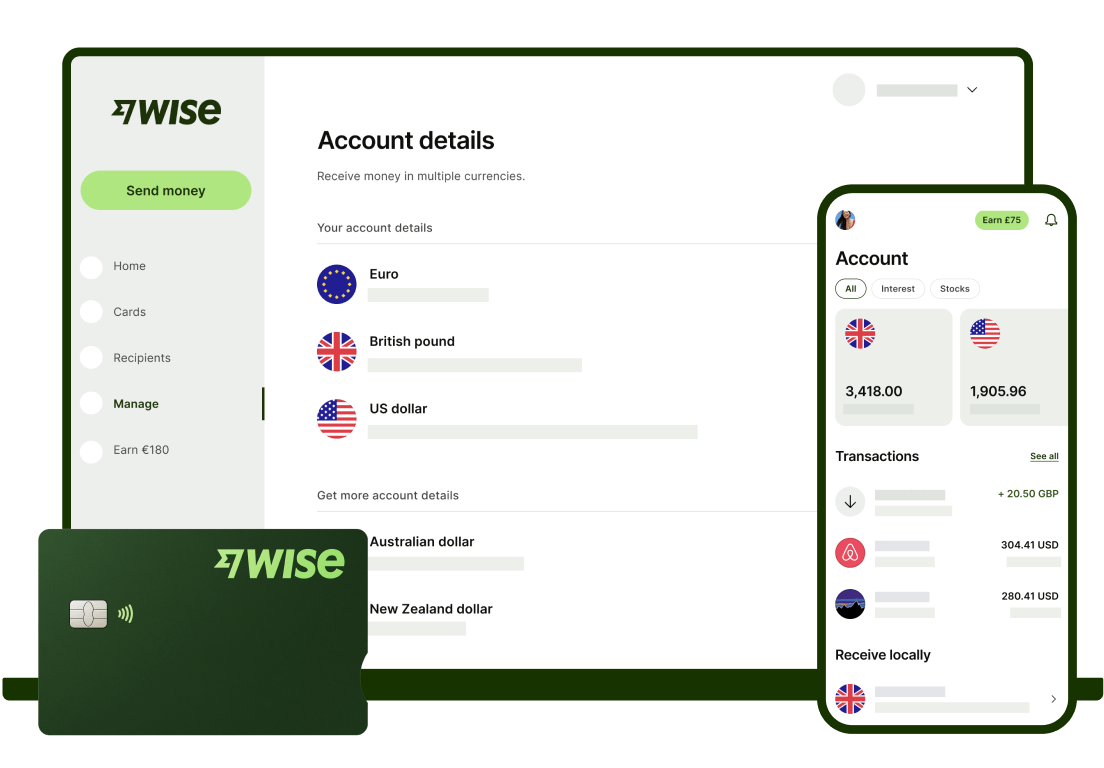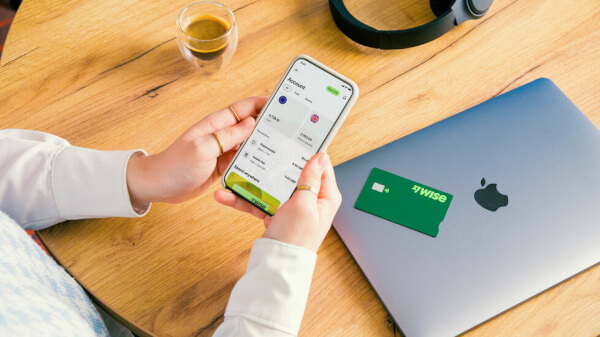5 Ways to Stand Out and Boost Black Friday Sales
Black Friday is the day after Thanksgiving, falling on Friday 29th November in 2024. It’s known for being a perfect time for snagging a bargain, opening the...

Interested in starting a business venture in Belgium? Whether you’re expanding your UK company or starting from scratch, Belgium has a lot to offer to foreign entrepreneurs. This includes a prime location in the heart of the EU, fantastic logistical infrastructure and a business-friendly environment.
But how difficult is starting a business in Belgium as a foreigner? Find out everything you need to know here in this essential guide, including how to get your business on the Belgium company register.
We’ll also show you a smart way to manage your company’s finances in Belgium, Europe and worldwide, using Wise Business - the ideal solution for international businesses.
💡 Learn more about Wise Business
Belgium enjoys an extremely advantageous location, and is known for being at ‘the crossroads of Europe’. This unlocks access to over 500 million EU consumers, along with three very distinct markets - Dutch, French and German.¹ In addition, its capital Brussels is the headquarters of the EU.
Belgium also has extremely well-developed logistical infrastructure and is famous for the speed of trading across borders. This makes it the ideal base for international trade.
Added to this, the country has a government which is supportive of free-market competition, and which embraces global trade and foreign investment.
If you’re looking for business opportunities in Belgium, it could be worth looking at the sectors that have the biggest impact on the country’s economy. These are:¹
- Transportation services
- Manufacturing
- Biotech
- Exports.
One of the most important things you’ll need to do to set up your new business is to register it with the Belgium company register. This is the Crossroads Bank for Enterprises (CBE).²
But before you can register, you’ll need to decide on a legal structure for your new venture. There are a few different entity types to choose from in Belgium. You can be a sole trader, or you can choose from one of the following company types³:
- Anonymous society (SA - Société anonyme)
- Limited liability company (SRL - Société à responsabilité limitée)
- Cooperative Society (SC - Société coopérative)
- General partnership (SNC- Société en nom collectif)
- Limited partnership (SComm - Société en commandite)
- Simple company (Société simple).
We’ll look at each in more detail next.
This is a public limited company which has a primary focus of raising capital. It’s designed for companies of a certain size, and only one person or legal entity is needed to set one up. Liability is limited for shareholders.
This is a common choice for Belgian businesses, as it is a basic company form with minimal mandatory regulations. A private limited liability company can be set up by one person, and liability is limited to the extent of the invested capital.
A cooperative in Belgium requires at least three founders, and is designed for people pursuing a shared cooperative ideal. The company exists to meet the needs of its shareholders. Cooperatives can either be set up with limited or unlimited liability.
A general partnership is set up by two or more people, where all partners are liable for the company’s debts and obligations.
Another type of partnership, this kind of company involves liability limited by shares. A minimum share capital is required.
The last entity type is a simple company, a limited partnership in which two or more people collaborate under a shared name.
Let’s take a look at the initial steps you’ll need to take to get your new venture in Belgium off the ground:⁴
The initial documents you’re likely to need to register your business with the CBE vary depending on business type. But it’s useful to have the following to hand:⁵
- ID and proof of address for all business partners
- A financial plan for the business
- Proof of contribution (if applicable)
- Registered office address for the business
New to Belgium, or starting a business for the very first time? You’re bound to have questions about how it all works. You’ll find the answers to some of the most commonly asked questions below, including info on costs, VAT registration and more.
It costs around €70 to register your business with the Crossroads Bank for Enterprises. However, there are likely to be other costs, such as:⁶
- €50 for VAT registration
- €250 for publication of articles of association in the Belgian Official Journal
- Notary fees
- Fees for the services of a ‘one-stop shop’ (if you’re using one).
Check below the current conversion rate between GBP and EUR.
Wise Business account is a handy tool for UK business expanding abroad. Once you set up your business in Spain you can easily convert British Pounds to Euros to hold money on the Spanish currency, receive Euros with your account details or set payments like a local. All conversion is done based on the mid-market exchange rate with low and transparent fees.
Get started with Wise Business 🚀
If your business is required to pay VAT under the Belgian VAT code, you must register with the VAT authorities. You can simply complete a VAT identification request form and send it to the relevant VAT administration office (or visit in person).⁷
There are quite a few separate bureaucratic processes required to set up a company in Belgium, from filing your incorporation documents to registering for VAT. This can be quite daunting for newcomers.
This is why it could be advisable to use what is known as a ‘one-stop shop’ - an accredited business counter service which handles all of the different processes for you, in exchange for a fee.
You’re likely to need a resident permit and work visa to start a business in Belgium.⁶ You should also check whether you’ll need particular professional qualifications, permits, licences or permissions depending on the nature of your business.
Having a Belgian bank account could be useful for managing your new company’s finances, but it isn’t the only option. In fact, there are alternatives that could be more convenient and cost-effective too.

Open a Wise Business account and you can manage your company’s finances in 40+ currencies, including EUR and GBP. You’ll be able to pay suppliers and staff in their own currency, as well as receiving payments in multiple currencies.
You can even automate payments using the powerful Wise API to save even more time. See how it works here in our case study
There are even Wise cards to cover business expenses, letting you and your team spend in any currency in 150+ countries across Europe and beyond.
Wise payments are fast and fully secure (even for large amounts). Best of all, you’ll only pay low, transparent fees and always get the mid-market exchange rate.
This is the rate that banks use to buy and sell currency, and is widely considered the fairest rate you can get. When banks carry out currency conversions on behalf of customers, they usually add a mark-up or margin to the exchange rate. This makes it more expensive for your business, as less of your money reaches your recipient.
It’s quick and easy to open a Wise Business account, with a fully digital application, verification and on-boarding process. Check out the requirements here.
Get started with Wise Business 🚀
After reading this, you should have a better idea of where to start when it comes to establishing a company in Belgium. We’ve covered legal entity types, how to get on the Belgium company register and other essentials like registering for VAT. The best of luck with your new venture.
Sources used for this article:
Sources checked on 22-Feb-2024
*Please see terms of use and product availability for your region or visit Wise fees and pricing for the most up to date pricing and fee information.
This publication is provided for general information purposes and does not constitute legal, tax or other professional advice from Wise Payments Limited or its subsidiaries and its affiliates, and it is not intended as a substitute for obtaining advice from a financial advisor or any other professional.
We make no representations, warranties or guarantees, whether expressed or implied, that the content in the publication is accurate, complete or up to date.

Black Friday is the day after Thanksgiving, falling on Friday 29th November in 2024. It’s known for being a perfect time for snagging a bargain, opening the...

Black Friday - Friday 29th November in 2024 - kicks off the end of year shopping period, with huge uplifts in on and offline sales as people grab a bargain...

The term "turnover" is used often in the world of business, but its implications vary significantly depending on the context. At its core, turnover is a...

Wise is a financial technology company focused on global money transfers that offers two different types of accounts: a personal account and a business...

In today's fast-evolving digital landscape, e-commerce is quickly transforming the ways consumers shop and how businesses operate worldwide. DHL’s E-Commerce...

In an increasingly interconnected global economy, small businesses in the United Kingdom (UK) have more opportunities than ever to expand through import and...